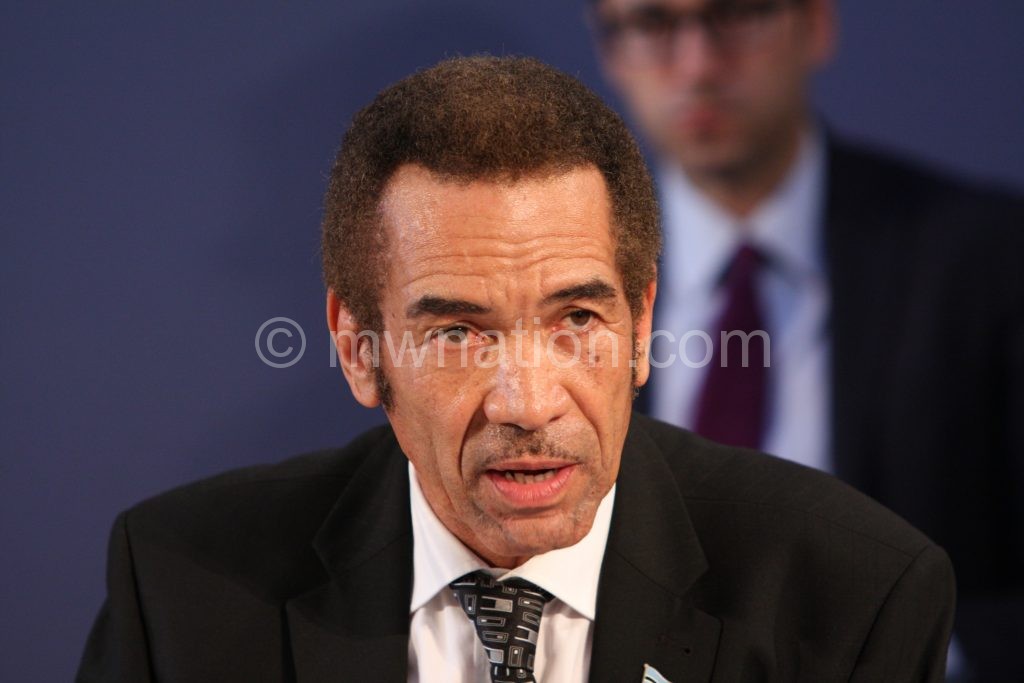Sadc chair declares region a disaster area
The Southern African Development Community (Sadc) has been declared a disaster region following the El- Niño-induced drought that has affected millions, leaving them without enough food.
Sadc chairperson and Botswana President Seretse Khama Ian Khama has launched a close to $2.5 billion appeal to assist the affected people, according to a statement issued by Sadc secretariat.

“The 2016 regional food security and vulnerability assessments indicate that the number of food insecure people is about 40 million, which is about 14 percent of Sadc’s total population,” he said, appealing to the international community to provide assistance to affected member states.
The Sadc chairperson spoke at a ceremony attended by international cooperating partners, representatives from governments and ministries responsible for Agriculture or Disaster Management, United Nations and Humanitarian Agencies and members of the diplomatic corps.
Six Sadc member States—Malawi, Botswana, Lesotho, Namibia, Swaziland and Zimbabwe—have already declared national drought emergencies.
South Africa has declared a drought emergency in eight of its nine provinces while Mozambique recently declared a 90-day institutional red alert for some southern and central areas.
The Sadc statement said the appeal is in support of on-going planned efforts by Sadc member States in Angola, Botswana, the Democratic Republic of Congo (DRC), Lesotho, Madagascar, Malawi, Mozambique, Namibia, Swaziland, Zambia and Zimbabwe.
It also quotes the United Nations Office for the Coordination of Humanitarians Affairs and El Niño Coordinator for Southern Africa, Timo Pakkala, reaffirming his continued commitment to supporting the Sadc region to mitigate the negative effects of the El Niño-induced drought.
In response to the Appeal, the United States of America, United Kingdom and the European Union outrightly pledged $300 million, £72 million and 60 million euro respectively towards humanitarian needs and response recovery.”
Locally, results of the Malawi Vulnerability Assessment Committee (Mvac) exercise, aimed at assessing the food security situation in the country and determining the number of people who are likely to be food insecure during the 2016/17 consumption period show that a minimum of 6.5 million people will not be able to meet their annual food requirements.
The Mvac figures though are lower than the maize consumption deficit of 790 000 metric tonnes affecting 8.4 million people, as reported by the Ministry of Agriculture, Irrigation and Water Development based on the Second Round Crop Estimates released in April 2016.
Minister of Foreign Affairs and International Cooperation Francis Kasaila, in an interview, said with about 40 million people in the region affected with drought, there was need for efforts championed by the entire region.
Of the $380 million needed for the recovery and response plan in Malawi, only $116 million is available.





